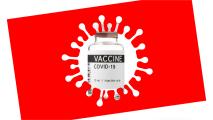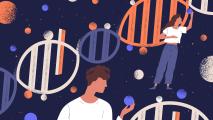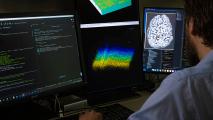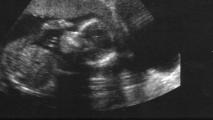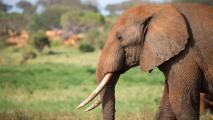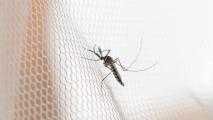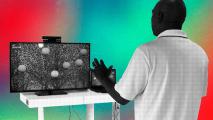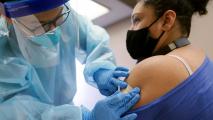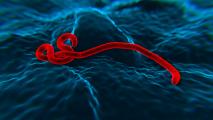
Biotech
Human history has been all but defined by death and disease, plague and pandemic. Advancements in 20th century medicine changed all of that. Now advancements in 21st century medicine promise to go even further. Could we bring about an end to disease? Reverse aging? Give hearing to the deaf and sight to the blind? The answer may be yes. And soon.
More
Internet-connected “smart” traps help cities combat rats
Internet-connected rat traps are bringing rodent control into the 21st century, helping cities leverage data in the battle against rats.
Vaccine used to treat COVID-19 for first time
A man whose persistent coronavirus infection kept him isolated for 7 months finally tested negative after receiving a COVID-19 vaccine.
This “family tree of all of humanity” shows how all of us are linked
Researchers have mapped the genetic ties between every person who ever lived, in the “first draft” of our shared family history.
Brain implant lets man with locked-in syndrome share thoughts
A man with total locked-in syndrome has used a brain-computer interface to spell out sentences with his mind.
Paris plans to be completely cyclable by 2026
France is investing a total of 250 million euros ($290 million) to make the city of Paris entirely bikeable.
Mammals dream about the world they are entering even before birth
A study finds that baby mammals dream about the world they are about to experience to prepare their senses.
Elephant tusk DNA is used to expose poaching networks
Researchers using cell phone records, shipment logs, and elephant DNA have solved poaching mysteries and identified trafficking networks across the continent.
Space lettuce engineered to stimulate bone growth
To protect Mars astronauts from bone loss, scientists genetically engineered a lettuce that produces a bone-stimulating hormone.
Video games for mental health are coming
New startup DeepWell Digital Therapeutics is developing video games to help treat mental health disorders.
Michio Kaku makes 3 predictions about the future
Dr. Michio Kaku on what is likely and what is possible provides a stimulating vision of the future.
New children’s malaria treatment clears out infection in liver
Malaria can hide in the liver, causing relapse months or years later. Now, public health officials have a new treatment to prevent relapse for children under 16.
Video game for at-home stroke rehabilitation cuts costs, benefits patients
Patients and healthcare workers are benefitting from video games designed to help with stroke rehabilitation, chronic pain relief, and more.
One shot of this COVID-19 drug reduces risk of death by 60%
In-development COVID-19 drug Peginterferon Lambda reduced risk of hospitalization or lengthy emergency room visits by 50% in a phase 3 trial.
New Ebola antibodies neutralize the most dangerous strains of the virus
Researchers have found two new antibodies which bind to the most dangerous strains of Ebola.
Newly discovered types of brain cells may hold the key to memory
Researchers believe they have discovered two new types of brain cells that play a key role in memory.
A meat-free world by 2035? “Totally doable,” says Impossible Foods CEO
“Our mission is to completely replace the use of animals as a food technology by 2035,” said Impossible Foods CEO Patrick O. Brown.
Blasting mushrooms with UV light boosts vitamin D by 4,600%
Roughly half the world population, including in America, has insufficient levels of vitamin D. UV irradiated mushrooms can help.
China’s COVID-19 cases surge, with low elderly vaccination rates
China’s “zero-COVID” policies may be contributing to a surge of cases that has forced 50 million people into lockdown.
Safer painkillers: A novel drug treats pain without killing people
Painkillers have nasty side effects, such as organ damage or addiction. Researchers have discovered a new drug that may cause none of these.
CRISPR cattle cleared for the first time by FDA
Beef cattle genetically altered to be less susceptible to heat stress have been cleared for human consumption by the FDA.
Get inspired with the most innovative stories shaping the world around us.














